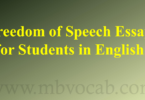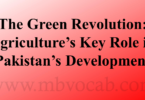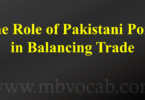Education of Pakistani Girls
The significance of female education cannot be contested. While some orthodox scholars may openly criticize the current educational system, their objections rarely extend to the education of Pakistani girls per se. The arguments in favor of education are hackneyed and clichéd, and we are well-acquainted with them all. We understand that an educated mother fosters an enlightened household. We are aware that education can dispel the shadows of superstition and conservatism. We recognize that our nation cannot advance as long as women remain devoid of the enlightenment of knowledge. How can we hope to maintain national prestige when a significant portion of our womenfolk lacks the ability to read, comprehend global events, or challenge their superstitious convictions? The uneducated mother becomes a hindrance to national progress, inadvertently causing harm to her offspring. This is an untenable situation. Moreover, education is the conduit through which individuals realize their fullest potential. If we allow our women to remain in ignorance, we squander half of our population.
These truths are indisputable. However, the crux of the matter lies in our dissension over the methods of imparting education. Presently, education is institution-based, necessitating the enrollment of girls in schools and colleges. In certain towns, girls have access to separate institutions, but in many places, they are compelled to join co-educational establishments at the primary level, with co-education continuing into university classes. This arrangement is not favored by many guardians, as it entails a significant waste of energy. Girls are compelled to study subjects that may hold no interest for them or prove useless in their future endeavors. Overburdening them with this burdensome and ultimately unprofitable system of education is counterproductive. Critics of the existing education system also highlight additional perils. Education appears to imbue the educated girl with skewed values. She becomes fashion-conscious and aspires to a life of opulence and comfort. Her standards for matrimony become exacting, leading to the prevalence of educated single women in cities like Lahore and Karachi, who often find themselves unhappy. Furthermore, she is gradually succumbing to Westernization, influenced in part by cinema. She tends to endorse what we term as love-marriages, a stance that, while potentially positive, frequently leads to unhappiness due to societal norms.
However, it is important to note that many educated girls have proven to be exemplary wives and ardent supporters of progressive movements and reforms. Some have even risen to become national leaders. At the frequent women’s conferences in Pakistan, the voices of educated Pakistani women resonate clearly and resolutely. They display an intelligent engagement with various issues, aligning themselves with men in advocating for progressive reforms, while also advocating for prudence and caution.
This state of affairs, though commendable, underscores the inadequacy of the current educational system in our context. Our girls should receive instruction that emphasizes domestic hygiene, needlework, and culinary skills, rather than focusing extensively on advanced mathematics or philosophy. A greater emphasis should be placed on practical skills. Painting, music, and needlework should hold a prominent place in the curriculum, though not necessarily a dominant one. Geography, history, everyday science, and literature should be taught in a comprehensible manner. Lastly, our girls should receive insight into contemporary politics and global movements, particularly those pertaining to Pakistani women.







